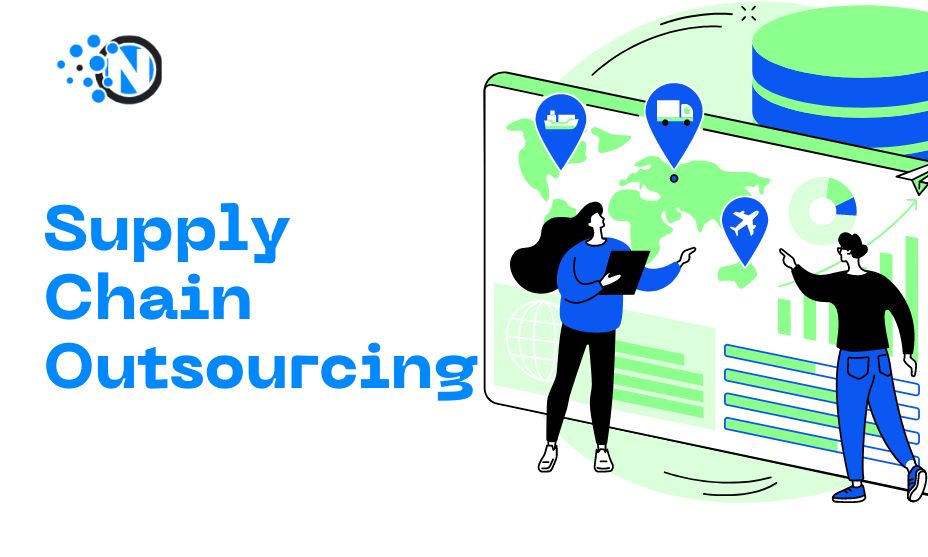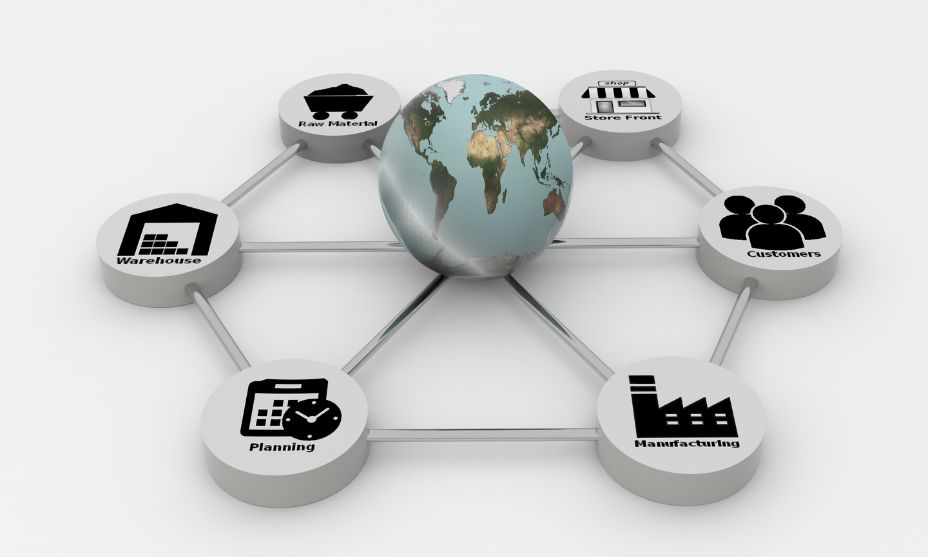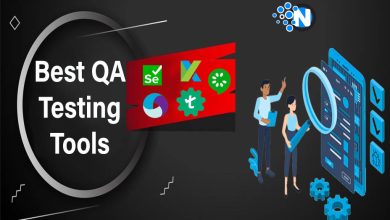Supply Chain Outsourcing – Enhancing Efficiency and Growth

In this fast-paced corporate world, it is expected to outsource the supply chain. By outsourcing certain activities to external service providers like GEP, companies can focus their time and endeavors on other pivotal strategic goals. This includes Logistics outsourcing, where firms let third-party providers handle logistics tasks.
Companies go for Supply Chain Outsourcing for various reasons. They might want to save money, tap into expert knowledge, improve efficiency, and concentrate on critical skills. Outsourced logistics services can vary significantly from transportation and warehousing to inventory tracking and order completion.
Businesses need to grasp fundamental optimization principles to gain an advantage in today’s constantly fluctuating commercial surroundings. This comprehension is vital to boosting operations efficiency.
Enhancing Efficiency – Key Strategies and Best Practices
Outsourcing plays a big part in improving supply chain management. Companies can improve supply work and costs by using outside professionals and tools.
One central idea is to focus on what your business does best. Another essential idea is to pick the right outsourcing partners, set up good communication, and oversee performance. Using lean principles can simplify processes and cut out waste, improving operations.
Using the best methods to improve the supply chain through outsourcing needs careful thought and good planning. An essential step is carefully checking vendors to ensure they fit the company’s goals and standards.
Building solid bonds with associates is vital to keeping a smooth flow of knowledge and materials across the supply chain. Effective contract management practices define roles and expectations, reducing risks and maintaining rule adherence.
Consistent check-ups and improvements of outsourced jobs are vital for keeping the supply chain efficient and effective. Regular assessments let companies identify and make necessary amendments. Changes also make sure outsourced jobs match evolving company goals and market demands.
By adopting proven approaches, firms can enhance their supply chain activities, save money, and improve service standards. These actions can keep them in the competitive race in the ever-shifting business world.

Technology Integration
Putting technology into outsourced supply chains streamlines everything companies do. Digital tools in these chains help teams work better. Organizations can optimize processes, improve communication, and drive innovation in logistics outsourcing.
Today’s supply chain management can only do with automation. It cuts down on routine work. It helps to avoid mix-ups. And it powers productivity. Using tech in logistics means operations run smoother. Plus, you can immediately see what’s happening in the supply chain.
In the world of business, success is about balance. It would help if you were effective, but you must also closely monitor costs. Putting technology in outsourced supply chains helps with both.
Leveraging Expertise for Growth
When businesses outsource supply chain tasks, they grow. They use skills and resources they don’t have. They also do things more efficiently. The business size doesn’t matter; this strategy helps them expand. It also lets them focus on improving fundamental skills they already have.
Companies can make their supply chains better by using external help. These helpers have the skills and know-how. They can help any business grow in a challenging market.
Outsourcing logistics means expansion on a worldwide scale. Companies can tap into new markets without needing huge investments. Good relationships with suppliers are essential, too. It means different suppliers offer different things. These help businesses adapt to what the market wants.
Embracing outsourced supply chain solutions enables organizations to broaden their operations, optimize expenses, and spur innovation in a swiftly changing worldwide market.
Risk Management and Compliance Considerations
For companies that outsource elements of their supply chain, effectively managing risk and maintaining compliance must be top priorities. This allows operations to run smoothly and prevents potential issues from arising.
When outsourcing work, it is essential to anticipate problems that may arise and develop solutions in advance. Potential issues like disruptions, quality deficiencies, or delays necessitate foresight so risks can be mitigated effectively.
Additionally, logistics outsourcing demands adherence to regulatory compliance and industry benchmarks to guarantee practices align with ethics and law. This ensures standards are satisfied to avoid penalties.
Data protection in outsourced supply networks is essential and necessitates strict steps to shield private information and sensitive data from infringements or unauthorized access. Firms must implement robust security protocols and arrangements with service companies to safeguard data throughout the supply chain procedure.
Measuring Success
Evaluating the effectiveness of outsourced supply chain activities is essential for companies to analyze the consequences of their choices. Key Performance Metrics (KPIs) are critical in determining productivity increases and monitoring expansion in this field.
Through employing specialized key performance indicators geared towards outsourced logistics, organizations can successfully track meaningful performance data like cost reduction, on-schedule delivery percentages, inventory rotation speed, and provider functionality. Analyzing these numbers yields valuable understandings into the proficiency of outsourcing plans and aids in pinpointing where progress can be made.
A thorough examination of data through analytical tools enables companies to observe tendencies, anticipate requirements, and optimize supply chain functions. By capitalizing on analytics in supply chain administration, associations can make judgments supported by data that foster proficiency and augment general execution.
Carefully selecting KPIs is essential for assessing the effect of outsourced supply chain activities. Also important is using analytics for confirming achievement in today’s demanding commercial setting.
The Future Trends and Innovations
Oursourcing is imperative for maximizing processes and promoting productivity as supply chain administration progresses. Remaining aware of ongoing improvements empowers associations to react rapidly to changing client needs and requests.
Recent shifts in outsourced supply chain management point towards increased openness, sustainability, and flexibility. Many organizations now utilize blockchain, IoT, and artificial intelligence to boost visibility and optimize procedures throughout the supply chain.
Providing additional beneficial services, forming strategic alliances, and utilizing data to guide choices characterizes the approaching times of outsourcing logistical operations. Modernization in supply chain administration integrates predictive investigation, self-ruling transports, and robotized process computerization. 3D printing is also, likewise changing how items are sourced, created, and conveyed.
By keeping up-to-date with emerging developments and adopting innovative solutions, companies can place themselves for achievement in the swiftly transforming scene of outsourced supply networks. Staying informed of shifts and welcoming fresh techniques allows businesses to be well-equipped for success as the external environment continuously progresses.
Conclusion
Outsourcing Supply Chain operations enables businesses to focus their efforts on essential strengths while taking advantage of specialists’ targeted expertise and assets. This methodology boosts functional proficiency and encourages sustainability by refining procedures and decreasing inefficiencies.
At the end of the day, recognizing outsourcing supply chain functions as a pivotal business approach can clear a path for continuous development, enhanced competitiveness, and long-lasting achievement in today’s ever-changing commercial arena.




